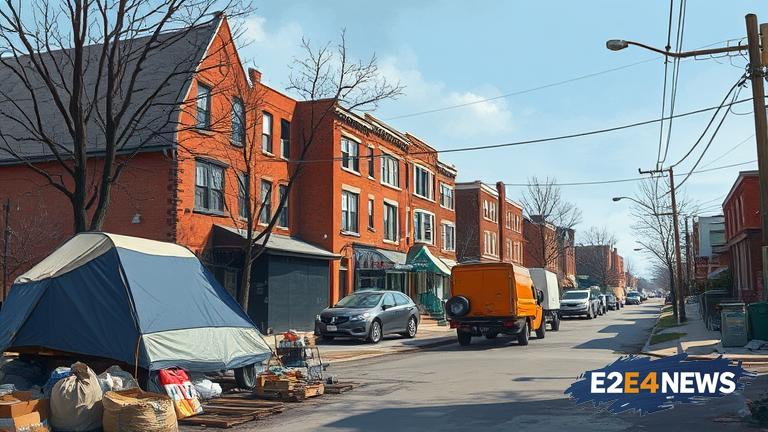The homelessness crisis in New Jersey has been a longstanding issue, but recent data suggests that the problem is worsening. According to a report by the National Alliance to End Homelessness, the state saw a 10% increase in homelessness between 2020 and 2021. This trend is particularly concerning, as it indicates that the efforts to address homelessness in the state are not keeping pace with the growing need. One of the primary drivers of homelessness in New Jersey is the lack of affordable housing. The state has a severe shortage of affordable housing units, which has led to a surge in housing costs. As a result, many low-income individuals and families are being priced out of their homes and forced to seek shelter elsewhere. The COVID-19 pandemic has also exacerbated the homelessness crisis in New Jersey, as many people have lost their jobs or seen their hours reduced, making it difficult for them to pay rent or mortgages. Furthermore, the pandemic has disrupted social services and support systems, making it harder for people to access the help they need. The state government has implemented various initiatives to address homelessness, including increasing funding for affordable housing and social services. However, these efforts have been criticized for being insufficient, and many advocates argue that more needs to be done to address the root causes of homelessness. The city of Newark, in particular, has been struggling with a high rate of homelessness, with many people living on the streets or in shelters. The city has implemented a number of initiatives to address the issue, including a homeless outreach program and a plan to build more affordable housing units. Despite these efforts, the problem persists, and many residents are calling for more to be done. The issue of homelessness is complex and multifaceted, and it will require a comprehensive and sustained effort to address. This includes increasing the supply of affordable housing, providing support services such as job training and mental health counseling, and addressing the root causes of homelessness, such as poverty and lack of affordable healthcare. Additionally, there is a need for more emergency shelters and transitional housing programs to provide temporary support for those in need. The state government, local authorities, and non-profit organizations must work together to develop and implement effective solutions to this crisis. It is also essential to raise awareness about the issue of homelessness and to reduce the stigma associated with it. By working together, it is possible to make a meaningful difference in the lives of those affected by homelessness and to create a more compassionate and equitable society. The people of New Jersey deserve access to safe, affordable, and stable housing, and it is the responsibility of the government and other stakeholders to ensure that this basic human right is protected. Ultimately, addressing the homelessness crisis in New Jersey will require a long-term commitment to creating a more just and equitable society, where everyone has access to the resources and support they need to thrive. The state must prioritize the development of affordable housing, increase funding for social services, and implement policies that address the root causes of homelessness. By taking these steps, New Jersey can begin to make progress in addressing this critical issue and ensuring that all residents have a safe and stable place to call home. The future of New Jersey depends on it, and it is time for the state to take bold action to address the homelessness crisis. The consequences of inaction will be severe, and it is essential that the state takes immediate action to address this issue. The people of New Jersey are counting on it, and it is time for the state to deliver. The clock is ticking, and the state must act now to address the homelessness crisis. The time for talk is over, and the time for action is now. New Jersey can do better, and it must do better. The state has the resources, the expertise, and the knowledge to address this issue, and it is time to put these assets to work. The people of New Jersey deserve nothing less, and it is time for the state to step up and address the homelessness crisis once and for all.
